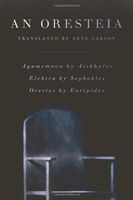The Complete Harvard Classics - ALL 71 Volumes
George Eliot, Charles Dickens, Ben Jonson, John Stuart Mill, Gottfried Keller, Robert Louis Stevenson, Euripides, Henry James, Thomas More, Marcus Aurelius, Sophocles, Daniel Defoe, Victor Hugo, Dante Alighieri, Adam Smith, John Locke, Walter Scott, Hans Christian Andersen, Martin Luther, Saint Augustine, Johann Wolfgang von Goethe, John Webster, Plato, Theodor Fontane, Epictetus, John Milton, Immanuel Kant, Guy de Maupassant, Richard Brinsley Sheridan, Jacob Grimm, Robert Browning, Francis Bacon, Henry David Thoreau, Thomas Hobbes, John Ruskin, Thomas Malory, Aesop, Blaise Pascal, Jonathan Swift, Homer, Virgil, Michel de Montaigne, Charles Darwin, Nathaniel Hawthorne, Samuel Johnson, William Hazlitt, Marcus Tullius Cicero, Voltaire, Thomas Browne, Gotthold Ephraim Lessing, William Makepeace Thackeray, Niccolo Machiavelli, George Sand, Miguel de Cervantes, René Descartes, Benjamin Franklin, Jean Jacques Rousseau, Thomas De Quincey, Aristophanes, Ralph Waldo Emerson, Plutarch, Wilhelm Grimm, Herodotus, Laurence Sterne, Molière, Percy Bysshe Shelley, Thomas Dekker, Edmund Burke, Thomas Carlyle, Izaak Walton, Christopher Marlowe, John Bunyan, Henry Fielding, Oliver Goldsmith, Sydney Smith, Alfred de Musset, Mark Twain, William Shakespeare, Jane Austen, Pedro Calderón de la Barca, Samuel Taylor Coleridge, Charles Augustin Sainte-Beuve, Aeschylus, Alessandro Manzoni, Joseph Addison, Washington Irving, Pliny the Younger, Friedrich von Schiller, Charles Lamb, Jean Racine, Richard Henry Dana, Edward Everett Hale, Philip Sidney, John Dryden, Ernest Renan, Pierre Corneille, George Gordon Byron, Robert Burns, Bret Harte, Bjørnstjerne Bjørnson, Alphonse Daudet, Abraham Cowley, John Fletcher, Theodor Storm, Tacitus, William Penn, Ambroise Paré, Juan Valera, Francis Beaumont, Walter Raleigh, Michael Faraday, George Berkeley, Leigh Hunt, Simon Newcomb, James Russell Lowell, Philip Massinger, Giuseppe Mazzini, David Garrick, Charles W. Eliot, Louis Pasteur, William Henry Harrison, Hippocrates, William Harvey, Honoré Balzac, Oliver Wendell Holmes, Thomas Babington Macaulay, Archibald Geikie, Richard Steele, Jean Froissart, Edgar Alan Poe, Francis Drake, Benvenuto Cellini, Francis Pretty, Thomas à Kempis, John Woolman, Joseph Lister, Alexander L. Kielland, William Roper, Philip Nichols, Hermann Ludwig Ferdinand von Helmholtz, Walter Bigges, Edward Haies, William A. Neilson, Ivan Sergejevič Turgenev, Leo Tolstoy, Fyodor Dostoevsky
















